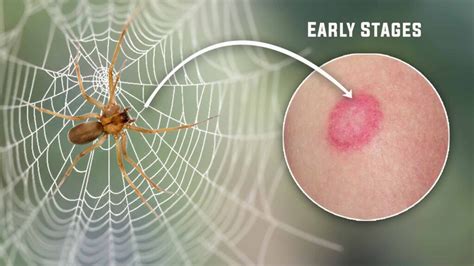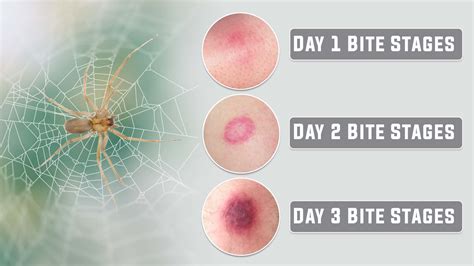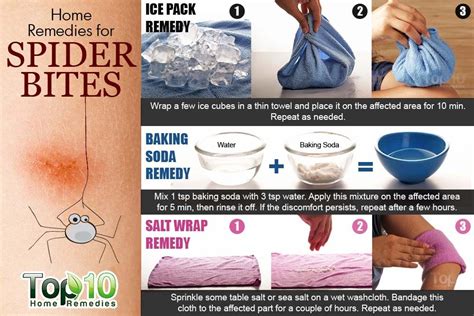Intro
Treat brown recluse spider bites with effective methods, relieving symptoms of necrotic lesions, pain, and inflammation, using natural remedies and medical treatments to promote wound healing and prevent infection.
Brown recluse spider bites can be a serious concern, as they can lead to severe symptoms and even long-term health issues if left untreated. The brown recluse spider, also known as the violin spider, is found primarily in the Midwestern and Southeastern United States. Its venom can cause necrotic lesions, which can be painful and take a long time to heal. It's essential to know how to treat a brown recluse spider bite to minimize its effects and prevent further complications.
In most cases, brown recluse spider bites are not life-threatening, but it's crucial to seek medical attention immediately if you suspect you've been bitten. Early treatment can significantly reduce the risk of severe symptoms and promote faster healing. While there is no specific antidote for brown recluse spider venom, various treatments can help manage symptoms and support the healing process.
Understanding the signs and symptoms of a brown recluse spider bite is vital for prompt treatment. The bite may cause a sharp, stinging pain, followed by redness, swelling, and blistering. In severe cases, the venom can cause necrotic lesions, which can lead to long-term scarring. If you experience any of these symptoms, it's essential to seek medical attention right away.
Identifying Brown Recluse Spider Bites

Characteristics of Brown Recluse Spider Bites
Some common characteristics of brown recluse spider bites include: * A red, white, or purple lesion * A ring of redness around the lesion * Necrotic tissue, which can lead to scarring * Severe pain, which can be sharp or burning * Swelling, redness, and blistering around the bite area It's essential to note that not all brown recluse spider bites will exhibit these symptoms, and some may be asymptomatic. If you suspect you've been bitten, it's crucial to seek medical attention to rule out any other conditions and receive proper treatment.Treatments for Brown Recluse Spider Bites

Medical Treatments for Brown Recluse Spider Bites
In severe cases, medical treatment may be necessary to manage symptoms and prevent further complications. Some medical treatments for brown recluse spider bites include: * Antibiotics to prevent infection * Pain management medications to reduce discomfort * Surgical debridement to remove necrotic tissue * Hyperbaric oxygen therapy to promote healing * Wound care to promote healing and reduce scarringHome Remedies for Brown Recluse Spider Bites

Natural Remedies for Brown Recluse Spider Bites
Some natural remedies can also help manage symptoms and promote healing. Some common natural remedies for brown recluse spider bites include: * Applying honey to promote healing and reduce scarring * Using apple cider vinegar to reduce inflammation and prevent infection * Taking turmeric supplements to reduce inflammation and promote healing * Applying a cold compress to reduce pain and swelling * Elevating the affected area to reduce swellingPreventing Brown Recluse Spider Bites

Reducing the Risk of Brown Recluse Spider Bites
Reducing the risk of brown recluse spider bites requires a combination of preventive measures and awareness of spider habitats. Some ways to reduce the risk of brown recluse spider bites include: * Being aware of your surroundings when working outdoors or in areas where spiders are common * Avoiding touching or handling spiders or their webs * Using a flashlight to illuminate dark areas before reaching or stepping into them * Wearing long sleeves and pants when working outdoors or in areas where spiders are common * Sealing food and trash containers to reduce the risk of attracting spiders and other insectsConclusion and Final Thoughts

Final Tips and Recommendations
Some final tips and recommendations for managing brown recluse spider bites include: * Seeking medical attention immediately if you suspect you've been bitten * Following the treatments and home remedies outlined in this article * Prioritizing prevention and taking the necessary steps to reduce the risk of brown recluse spider bites * Being aware of your surroundings when working outdoors or in areas where spiders are common * Avoiding touching or handling spiders or their websWhat are the symptoms of a brown recluse spider bite?
+The symptoms of a brown recluse spider bite can include a sharp, stinging pain, redness, swelling, and blistering. In severe cases, the venom can cause necrotic lesions, which can lead to long-term scarring.
How can I prevent brown recluse spider bites?
+Preventing brown recluse spider bites requires a combination of preventive measures and awareness of spider habitats. Some ways to prevent brown recluse spider bites include sealing entry points, keeping your home clean and clutter-free, using insecticides, wearing protective clothing, and avoiding reaching or stepping into dark or undisturbed areas where spiders may be present.
What are some common treatments for brown recluse spider bites?
+Some common treatments for brown recluse spider bites include applying cold compresses, elevating the affected area, taking over-the-counter pain medications, using topical creams or ointments, and undergoing surgical debridement to remove necrotic tissue.
Can brown recluse spider bites be life-threatening?
+In most cases, brown recluse spider bites are not life-threatening, but they can lead to severe symptoms and long-term health issues if left untreated. It's essential to seek medical attention immediately if you suspect you've been bitten to minimize the risk of severe symptoms and promote faster healing.
How can I manage symptoms and promote healing after a brown recluse spider bite?
+Managing symptoms and promoting healing after a brown recluse spider bite requires a combination of medical treatment and home remedies. Some common home remedies include applying aloe vera gel, using tea tree oil, taking vitamin C supplements, applying a warm compress, and elevating the affected area.
